This post is also available in:
 Indonesian
Indonesian
By Ruth Leeney and Maman
This is the fourth blog in our Women in Fisheries series.
In the small town of Bontang in East Kalimantan, Hani Nusantari grew up exploring, swimming and snorkelling in the ocean. When she was 13 years old she learned to scuba dive with her father and, not long afterwards, on a diving trip in North Sulawesi, Hani was enchanted by the aerial acrobatics of spinner dolphins for the first time. She subsequently studied Jacques Cousteau’s book on dolphins intently, fascinated by his adventures and his research vessel, the Calypso, and dreamt of one day having a boat like that herself.
That young girl became a passionate marine conservationist and the co-founder of JARI (Juang Laut Lestari), a Lombok-based marine organisation founded in 1997. JARI’s name literally translates to ‘Endeavouring for Sustainable Seas’, and that is at the heart of the organisation’s mission. They work towards this goal primarily through environmental education, ecotourism and marine and fisheries management.
Planting ideas… and coral
At the heart of the coral triangle, Indonesia has vast and diverse coral reefs which are home to thousands of marine species, and Hani sees these ecosystems as holding huge potential – not only as critical habitats for those species, but as the foundation for sustainable ecotourism and food security for coastal communities. The skills she learnt as an undergraduate student led her to develop coral monitoring and replanting programmes for JARI, some years ago. “I can still remember clearly how my friends were trying to catch a lobster by breaking table corals…. Unfortunately that used to be a common practice. That made me think, ‘I need to do something to protect our corals’ ”, she recalled.
I can still remember clearly how my friends were trying to catch a lobster by breaking table corals…. That made me think, ‘I need to do something to protect our corals’
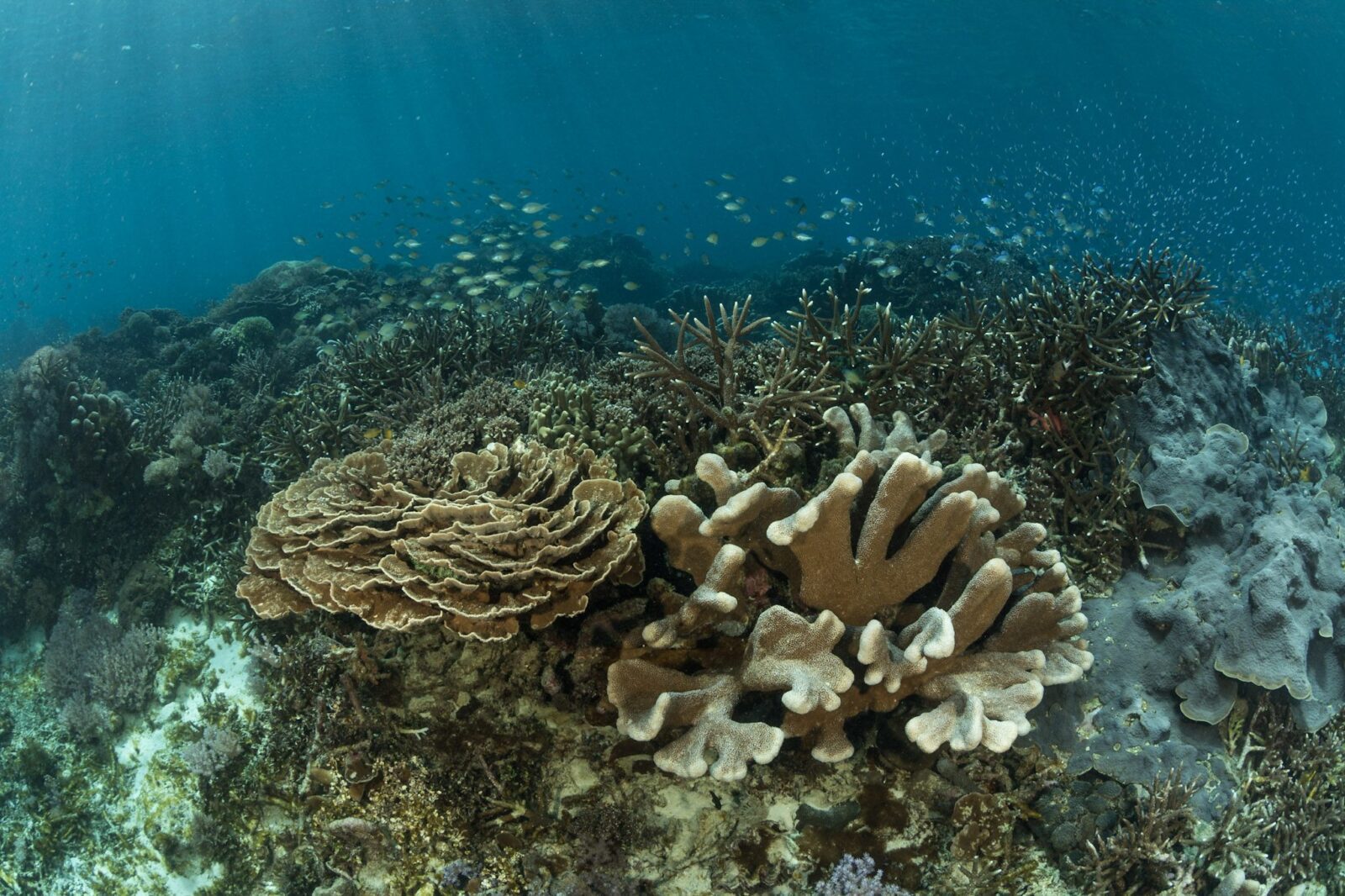
Coral reefs are home to a wealth of marine species and support fisheries, livelihoods and food security for communities throughout Indonesia. Blue Ventures | Garth Cripps
Seagrass beds, mangrove forests and coral reefs play an important role in coastal ecosystems around Lombok Island and throughout Indonesia. These underwater environments are threatened by destructive fishing practices, overfishing, pollution and mass tourism.
Through JARI, Hani and her colleagues aim to protect marine and coastal environments by providing communities with the tools they require to manage their local area. They do this by harnessing local knowledge, undertaking research and activities including mangrove replanting, coral transplantation and beach clean-ups in collaboration with local people, and building marine conservation leadership within communities. Theirs is truly a collaborative effort. As Hani explained, “the protection of our unique marine environments cannot be done alone and we are working with all levels of the community, including government (local and regional), businesses, schools and youth groups, to ensure that our programmes are sustainable and can have the greatest impact.”
Learning leads to connection
After she had been running JARI’s programmes for several years, Hani began to see her priorities shifting. Each time she stayed in a fishing community, she would watch the children swimming and playing in the water and felt that they were missing out, because they couldn’t see the beauty of the world beneath them, under the waves. She realised that she could do more to connect children with the ocean. “I felt that something was missing. I realised that they were unable to explore and build a real connection with the ocean, through learning about it. I wanted to do something to change that.”
She realised that the human element is a critical part of any marine conservation work, and that unless communities, and especially younger generations, were involved and engaged, conservation efforts could not succeed in the long-term.
Often when I stayed with a community during my work, I watched children swimming and playing in the water but I felt that something was missing. I realised that by not having the opportunity to learn about the ocean, they were unable to explore and build a real connection with it. I wanted to do something to change that.
In 2004, Hani was awarded a scholarship by the government of New Zealand, to undertake a Masters in Environmental Education at the University of Waikato. Her research investigated knowledge of marine environments in primary school students in Lombok. This research led her to develop the Laut Sehabat Kita (‘The Sea is Our Best Friend’) marine education programme, which has been rolled out across numerous primary schools.
Hani was delighted at the response of the students to their programme. “The children love playing the games we use as learning tools, and getting hands-on experience in seagrass beds, mangrove forests and coral reefs. They especially connect with animals including seahorses, sharks and some of the fish. My heart melts every time the students ask us to ‘please come more often to our classroom’. Students in other grades have told us they are envious and asked us to visit their classes as well!”
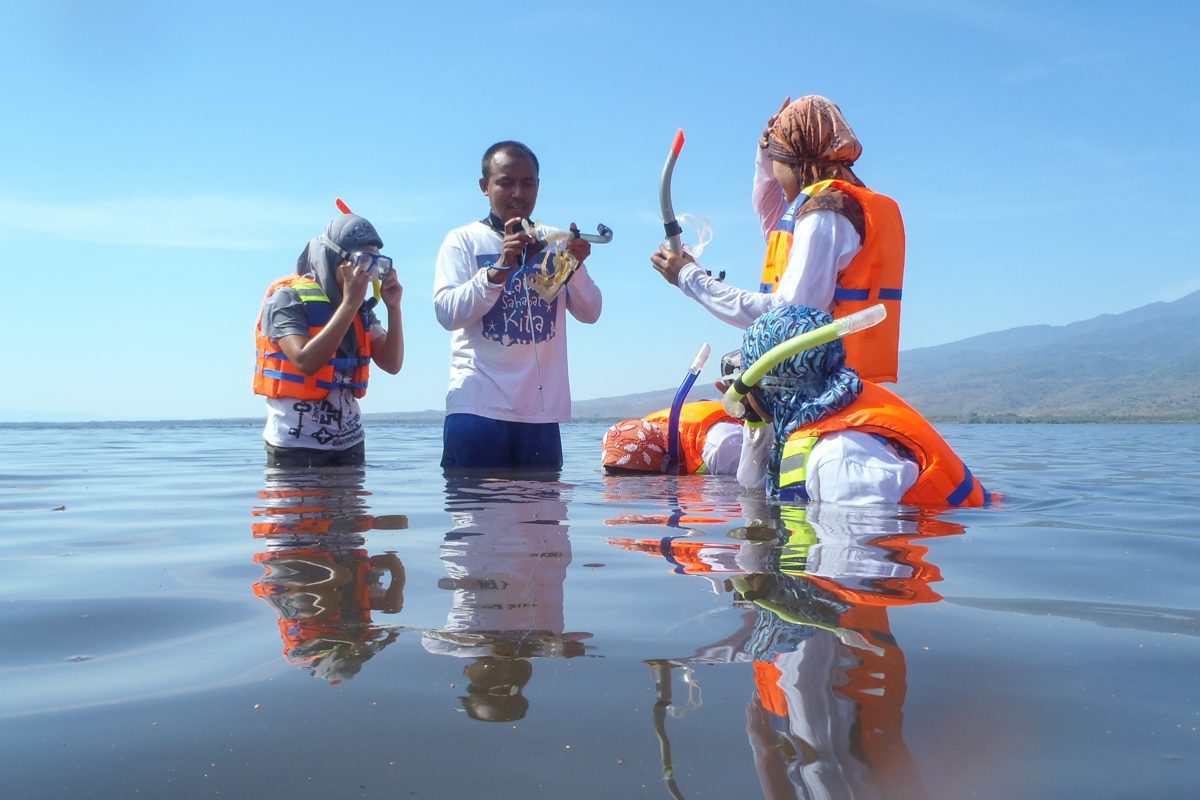
Teacher training for ‘The Sea is Our Best Friend’ programme. © JARI.
Moving towards gender equality
Hani noted that when she was in high school, it was challenging for women to become involved in marine science, but now, “knowledge has no borders any more. You can enter into the marine world through many doors”. She is optimistic that, by educating communities about the importance of the marine environment and of women’s roles in managing that environment, more women will become interested in the ocean and involved in safeguarding its future.
She also sees a change amongst younger generations, where women are open to less traditional roles and jobs. “Through my work, I have seen increasing involvement of young women in communities, either in community meetings or at community discussion groups. I think there is great potential for women to be leaders in coastal communities”.
Through my work, I have seen increasing involvement of young women in communities, either in community meetings or at community discussion groups.
Hani hopes that the visibility of high-profile women working in marine sectors, such as the current Indonesian Minister for Fisheries, will encourage other women to consider working in marine conservation and fisheries management. Hani herself is clearly a role model and an advocate for gender diversity in these fields, too. Nonetheless, there are few women in leadership positions in marine sectors in Indonesia; due at least in part, Hani believes, to the persistence of stereotypical ‘female’ roles and the lack of time this leaves women to engage in other activities.
Hani’s husband, who is the co-founder and director of JARI, is supportive both of her work and of their home life, and through mutual respect and sharing of domestic duties, they are able to achieve more. “We have the same vision – to contribute to the wellbeing of the ocean – so he understands that he also needs to take care of our children and do domestic tasks. Sometimes, he brings one or two of our children with him when he sails between Lombok and Sumbawa. I respect him as a leader and more importantly as a husband who is willing to devote time to his family”.
A vessel for change
The supportive relationships and shared vision amongst Hani, her husband and the rest of the JARI team have allowed JARI to take an impressively multi-faceted and ambitious approach to achieving their goals. After dedicating years to building JARI with her colleagues, Hani’s dream was finally realised – in 2013, JARI bought a boat. This first boat was named Yosina – the name given to a seahorse by a little girl in Papua whilst JARI were conducting seahorse research there – and was soon joined by Auseana – named by the Indonesian and Australian students involved in JARI’s educational programme. These water-based education, research and conservation platforms have travelled throughout Lombok and Sumbawa. “I am very fortunate to have family and friends who have the same vision for the Indonesia archipelago and its seas, and they made my dream become a reality. Now we have our very own boats!”
Hani and her colleagues hope to make their boats available for hire by research groups and for taking paying guests to assist in marine monitoring. The profits from their ‘marine research tourism’ will be used to deliver conservation messages to coastal communities throughout Lombok and Sumbawa, and to introduce children in coastal schools to snorkelling and learning about marine life. In this way, they hope to be able to run their educational programme without being reliant on funders.
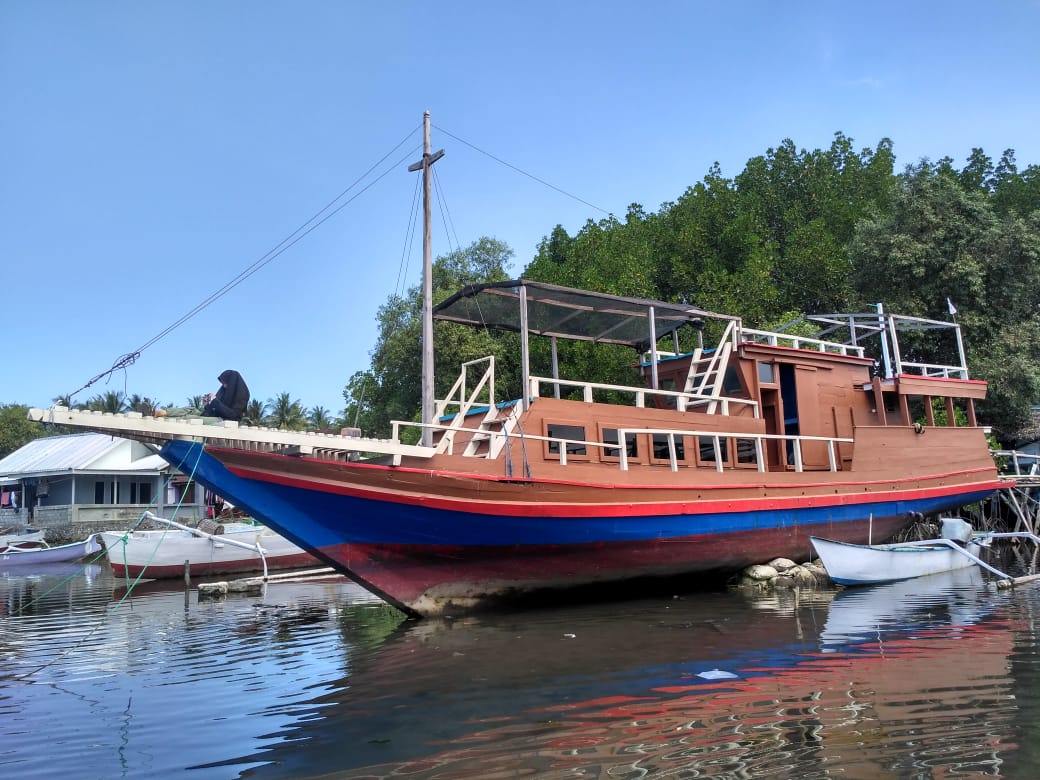
JARI’s education and research vessel, Auseana. © JARI.
An integrated vision
These days, although she clearly still has a passion for being out on the water and encountering her beloved spinner dolphins, Hani devotes her energy towards Indonesia’s next generation of ocean advocates. As JARI’s Education and Outreach officer, she develops and delivers educational programmes in local schools, including a ‘Sister School’ programme in which two schools in East Lombok have been paired with schools in Melbourne, Australia. This programme allows for the students to learn about the similarities in their lives – living close to the coast and the activities they like to do. They also learn about each others’ backgrounds, languages, local foods and religions, and learn to respect those differences. In this way, Hani is building connections not only between students and their marine environment, but also amongst people in different countries and from differing cultures.
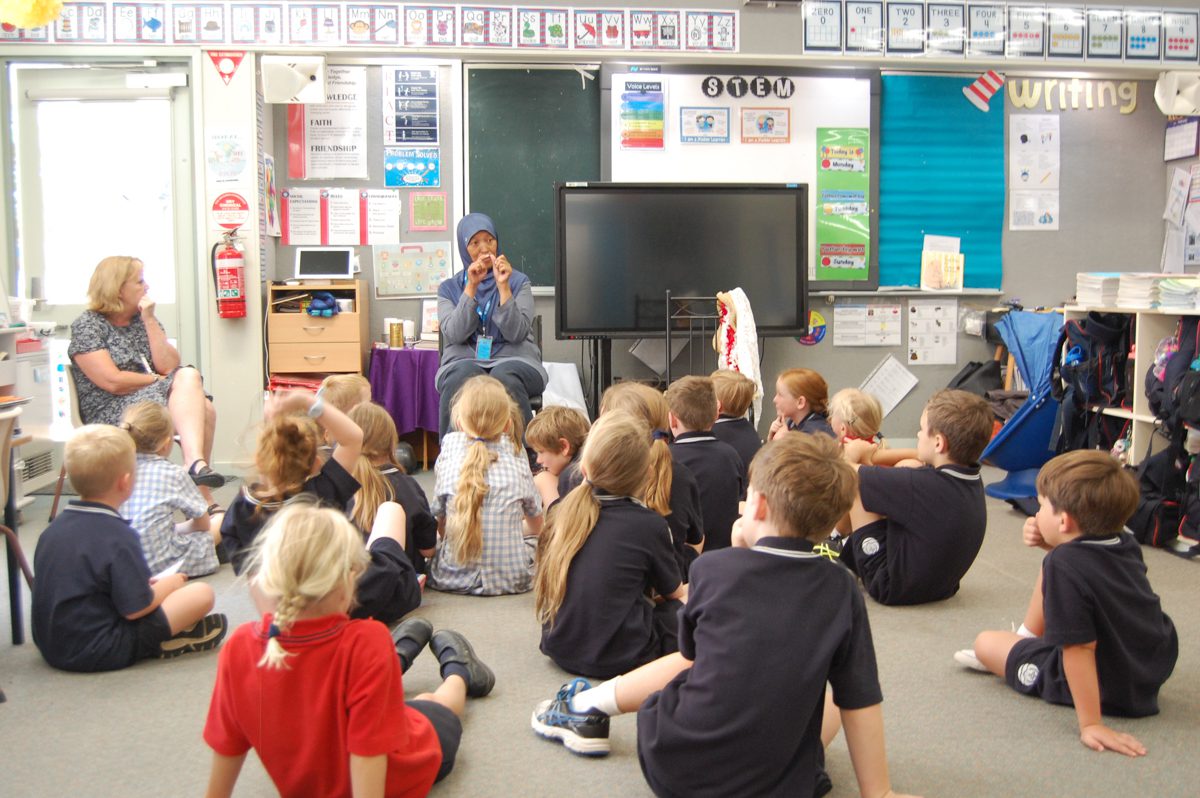
Hani visiting one of the Australian schools within JARI’s sister school programme. © JARI.
Even with her passion and commitment, Hani realises that JARI cannot bring about immediate change amongst coastal communities. Rather, her work is a long-term investment in younger generations, and a chance for them to understand how important their ocean and coastal environments are for their future, and the future of the whole planet. JARI’s educational programme is just one part of their innovative, integrated vision to protect Lombok’s marine environment and support those communities that rely on it. The hope that one or two of the children she educates will become leaders in protecting Indonesia’s oceans, keeps Hani motivated. “Two thirds of Indonesia is water. We need more people to look after our marine environment!”. She is certainly doing all she can to inspire young people in Indonesia to do just that.
Two thirds of Indonesia is water. We need more people to look after our marine environment!
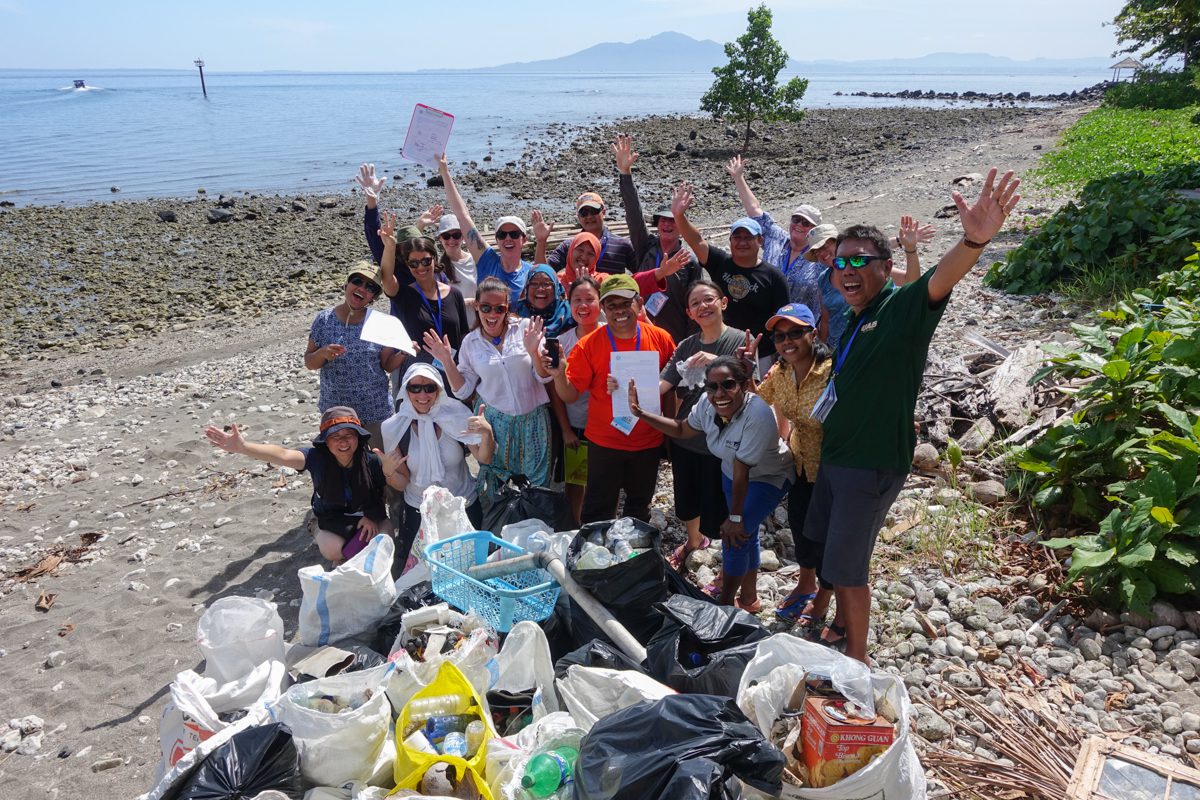
In 2016, JARI organised and hosted the International Pacific Marine Educators Network conference and ran some activities such as this beach clean-up, with local communities. © JARI.
Read more from our Women in Fisheries series:
Building confidence through communication: an interview with Mursiati of FORKANI

Illustration: Indah Rufiati


Wonderful article, great program, powerful woman! I would likecontact information that might allow me to volunteer with the organization or become one of the ecotourists her program hosts.